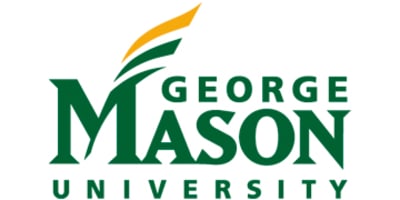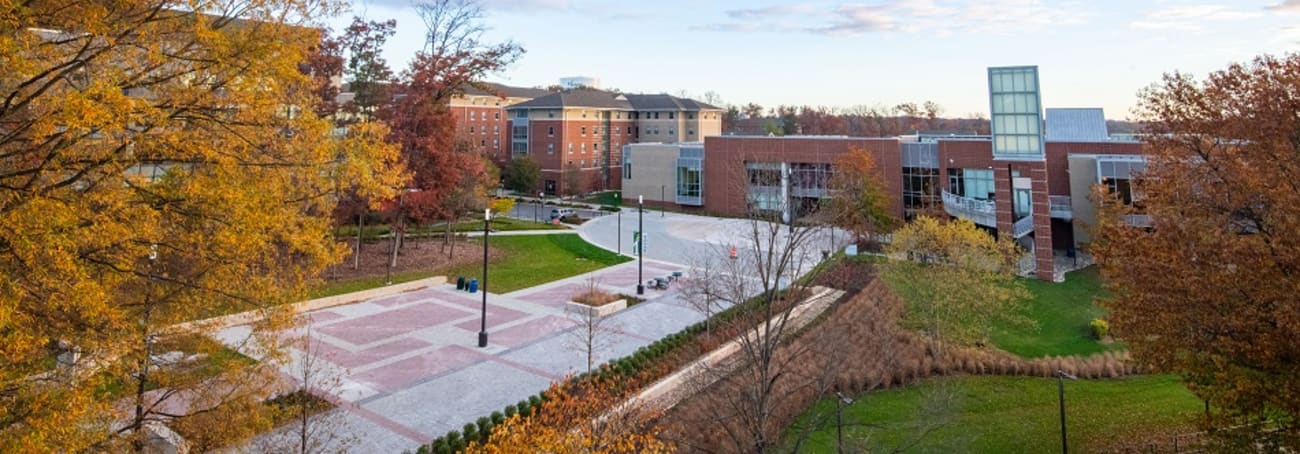
George Mason University - Bioengineering Department

Introduction
Bioengineers save lives. Bioengineering, also called biomedical engineering, applies engineering tools and approaches to solving problems in biology and medicine. Choosing a degree in bioengineering is a commitment to a challenging and rewarding field dedicated to creating solutions to improve health.
A Wealth of Opportunities
Mason's bioengineering students have the opportunity to search for life-saving answers to complex medical problems. Both our graduate and undergraduate students explore current research topics.
Our students work side-by-side with top bioengineering researchers to:
- Develop a novel approach to predict aneurysm rupture based on computing blood flow patterns.
- Use the latest ultrasound technology to improve prosthetics for arms, hands, and legs.
- Put together maps of neuron connections in the brain to understand brain function and neurological diseases.
- Engineer new biomaterials and nanostructures to regenerate tissues and modulate the body’s immune responses.
Our undergraduate program culminates in a senior design experience. One team of senior engineering students garnered national attention for designing a prosthetic hand that enabled a 10-year-old to play the violin. Another bioengineering team won first place for their advanced MRI project at a Biomedical Engineering Society undergraduate research competition. Our senior design course is now being further enriched thanks to a recently funded NIH grant that permits our students to spend 6 weeks in clinical immersion in a local hospital prior to entering their senior year. Their projects will respond to a clinical challenge and be guided by a team of advisors including a clinical mentor, industry advisor, and our bioengineering faculty.
Our department is supported by a distinguished group of accomplished individuals from our biomedical and health sciences community. These individuals make up our Bioengineering Alliance and support the mission and activities of George Mason University’s Department of Bioengineering. The alliance is the critical industry and institutional advisor to the department’s activities and programs, helping to lead the definition and execution of the department’s strategic research plan including the components of education, research, commercialization, and fundraising.
Highly Flexible Career Choices
Your college experience in Mason's Bioengineering Department will be rich with academic and research opportunities, and your degree will open countless career opportunities.
Students who earn a bachelor of science in bioengineering are highly sought after for positions in the biomedical industry and for admission to graduate school or medical school. Those who receive an MS or a PhD in this field garner top jobs in the industry, government, and academia.
- Academic research in biomedical technology
- Product development in the medical device, biotechnology, and pharmaceutical industries to commercialize therapeutics and instruments for clinical applications.
- Software and instrument design and control in industry and in hospitals.
- Implementation of and monitoring regulatory compliance for medical products.
- Working in business, legal, and intellectual property roles of companies and government agencies in the health care sector.
Outstanding Faculty
Mason’s bioengineering faculty members are internationally recognized leaders in biomedical imaging, computational biomedicine, biomaterials, nanomedicine, neurotechnologies, and computational neuroscience. By working and learning with them, you will be at the forefront of these fields and ready to meet your future challenges.
Our faculty members, who have in-depth knowledge and experience in the many fields of biomedical engineering, guide student success in their studies and help partners advance their research and development projects.
Our faculty:
- Work with students on their award-winning senior capstone projects.
- Offer students scholarships to study in their areas at both the undergraduate and graduate levels.
- Collaborate worldwide with more than 50 different institutions and companies.
- Publish in the top journals in biomedical engineering and related fields.
- Develop novel medical devices including finely controlled robotic prosthetics for amputees, new biomaterials that help joint tissues to heal, advanced drug delivery systems to treat cancer and infectious diseases, new tissue imaging devices, and state-of-the-art rehabilitation methods.
- Apply modeling and image analysis methods to guide cardiovascular interventions and to assess personal wellness and the biomechanics of the pelvic floor in pregnancy.
- Study the brain and neurological diseases by mapping neuron connections and understanding their plasticity and role in memory.
Our world-class faculty will prepare you to excel in your career.
Gallery
Student Testimonials
English Language Requirements
Certify your English proficiency with the Duolingo English Test! The DET is a convenient, fast, and affordable online English test accepted by over 4,000 universities (like this one) around the world.
Locations
- Fairfax
University Drive,4400, 22030, Fairfax


